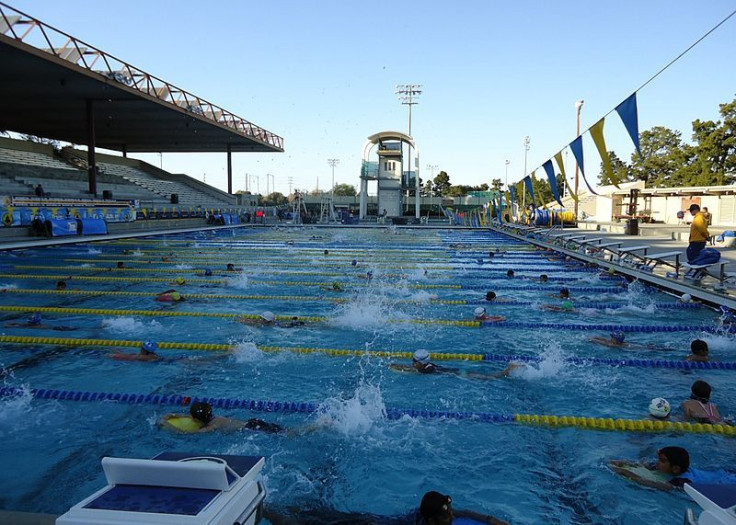Poop In The Water: CDC Finds Fecal Matter In Public Swimming Pools

Public pools may need a thorough scrubbing. Just in time for the summer swimming season, a new study released today by the Centers for Disease Control and Prevention (CDC) suggests that a majority of both indoor and outdoor public swimming pools may be contaminated with fecal matter.
The CDC collected water samples from public pool filters and tested them for microbe DNA, an agency press release says. Overall, 58 percent of the samples tested positive for E. coli, a bacteria found in the human gut and in human feces. It's also a marker for fecal contamination, the CDC says.
Such a high percentage of E. coli-positive samples could indicate that swimmers are having "fecal incidents" in the pool, or aren't showering thoroughly before they get in the water, the CDC says. However, the agency adds, none of the samples tested positive for the E. coli O157:H7 strain, which is known to cause illness.
The CDC also found the bacterium Pseudomonas aeruginosa in 59 percent of the samples, an organism which can cause skin rashes and ear infections. This could indicate either natural environmental contamination, or contamination introduced by swimmers, the CDC says.
The tests also detected Cryptosporidium and Giardia, bacteria that can cause diarrhea. However, these were found in less than two percent of the samples. The tests also don't indicate whether the germs are alive and able to cause infection, or dead. The study did not delve into sanitation at water parks or residential pools, and the CDC cautions that the study's conclusions cannot be extrapolated to all pools in the U.S. It does mean, however, that swimmers in public pools should be careful.
"Swimming is an excellent way to get the physical activity needed to stay healthy," said Michele Hlavsa, CDC Healthy Swimming Program chief, in the agency's statement. "However, pool users should be aware of how to prevent infections while swimming. Remember, chlorine and other disinfectants don't kill germs instantly. That's why it's important for swimmers to protect themselves by not swallowing the water they swim in and to protect others by keeping feces and germs out of the pool by taking a pre-swim shower and not swimming when ill with diarrhea."
In addition to showering before swimming, not swimming when ill, and not swallowing pool water, the CDC recommends that swimmers take bathroom breaks every hour, wash their hands after going to the bathroom or changing a baby's diaper, and change diapers in a bathroom or somewhere away from the pool area. It also recommends that residential pool owners make sure that their pools are properly chlorinated, so as to kill as many germs as possible.
Public pool fecal contamination made the news in New York City in the summer of 2012, when the newly renovated McCarren Park Pool in Brooklyn had to be shut down at least twice after children had accidents in the water. The city's park department closed down the pool on those occasions, in order to disinfect the water.
Source: U.S. Centers for Disease Control and Prevention. Morbidity and Mortality Weekly Report. May 16, 2013.
Published by Medicaldaily.com



























